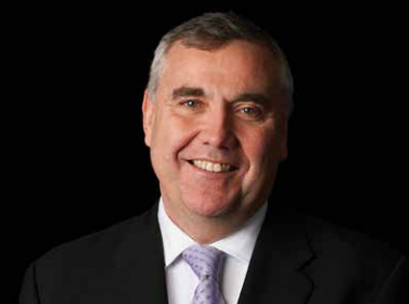Bernie Brookes, one of the most highly regarded retailers in Australia, has called on Myer and David Jones to revisit 2015 merger talks. Brookes was Myer CEO from 2006 to 2015 when he resigned and moved to South Africa to lead a turnaround of the debt-laden Edcon, the largest clothing, footwear and general merchandise retailer in that market, with more than 1400 stores across nine store formats. Recently appointed chairman of another company that has seen better days, Funtastic, Brookes ca
kes carved out an impressive and successful career at the Australian Woolworths company before taking on the challenge of revitalising a flagging Myer.
The first rejection
His early results at Myer were promising and allowed the private equity owners that appointed him to return the iconic department store brand to the Australian Securities Exchange as a public company. A key growth strategy then was to expand the store network, but sales, earnings and the share price ebbed and the expansion push was shelved.
In late 2014, Brookes and the Myer board of directors made overtures to David Jones about a merger of the two department store groups. Arguably travelling a little better than Myer at the time, David Jones was lukewarm to the plan, which encouraged Solomon Lew to build a shareholding in David Jones.
The Myer proposal was subsequently trumped in 2015 when the South African Woolworths launched a $2.1 billion takeover offer for David Jones that was accepted by the target’s board of directors and Lew.
In the past four years, both department store chains have lost market share, closed stores and reduced floorspace in other stores and slashed their asset value.
Sales have kept falling, along with profits, as the two chains strive for a sustainable business model for a contemporary department store while jousting with each other for bragging rights on select brands, in-store concessions and largely forgettable marketing programs.
DJs asset values slashed
Woolworths has sliced $1.15 billion from the asset value of David Jones, prompting several conversations among the investment community about a revisit of the 2015 merger proposal.
There is a view that the South African retailer would jump at the chance to quit the loss-making David Jones, which CEO Ian Moir concedes was acquired for a higher cost than it should have been.
Brookes, who knows the South African Woolworths as a competitor to Edcon and Myer, is one of the strongest advocates of a merger of the two Australian department stores.
He argues the market for department stores in Australia is about 50 to 60 stores, where there are currently around 100, many located in trading catchments that do not match the market positioning the two retailers are attempting to target.
However, he also believes that part of the problem for both retailers is the lack of a clear retail proposition and a point of difference.
Brookes said Myer and David Jones are targeting a diminishing, older and more conservative market and have little prospect of surviving if they don’t merge. He argues for further significant changes, including focusing on clothing accessories and cosmetics as well as cutting floorspace, an approach both retailers are pursuing under their current management.
Lower costs, higher productivity
Brookes contends a merger would reduce back-of-store operating costs and a reconfigured smaller store network would improve productivity from the floorspace, improving earnings, and create better customer service and an enhanced shopping experience.
The real question in a merger of Myer and David Jones is, in part, prompted by Brookes’ observations on downsizing. Would a merged entity simply continue to shrink, surrendering market share, brand leverage and customer engagement?
Or would the merging of two struggling retailers create a strong, resilient, successful and relevant department store chain?
One interested party in any merger rumblings will be Solomon Lew, who pocketed a tidy profit on the sale of his shares in David Jones to Woolworths in 2015 but currently retains a parcel of shares in Myer worth far less than he paid for them.

